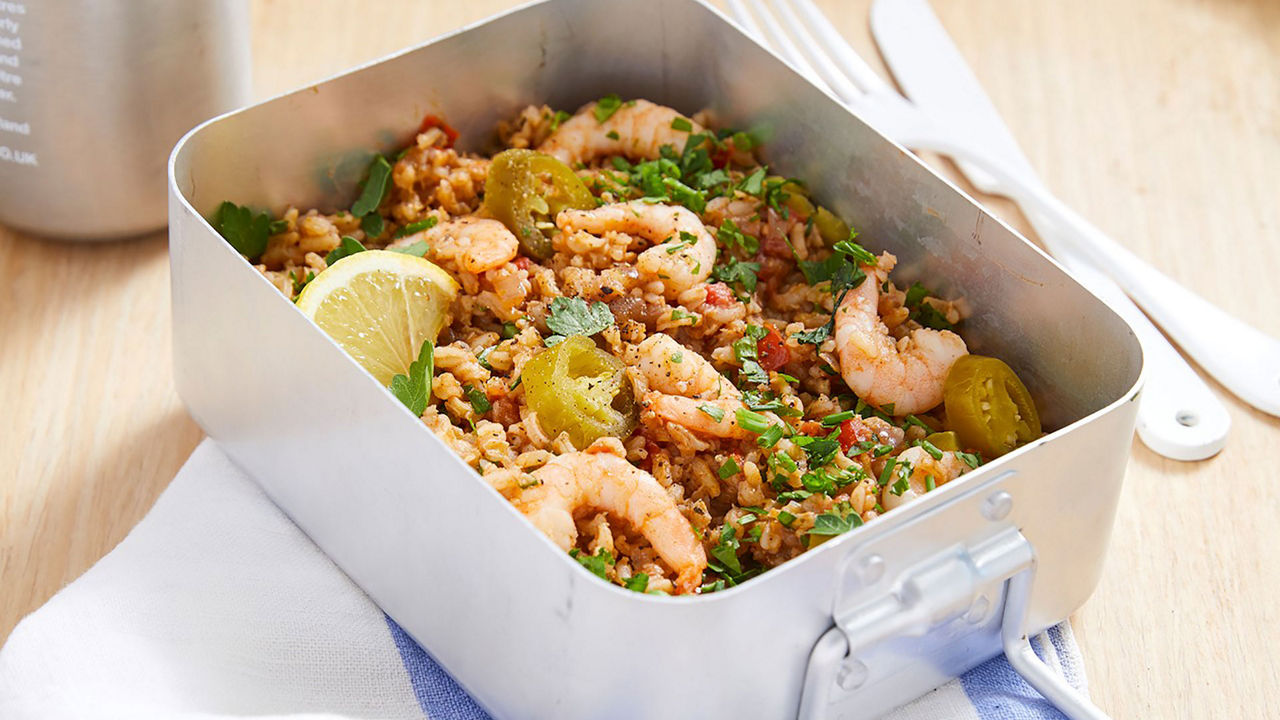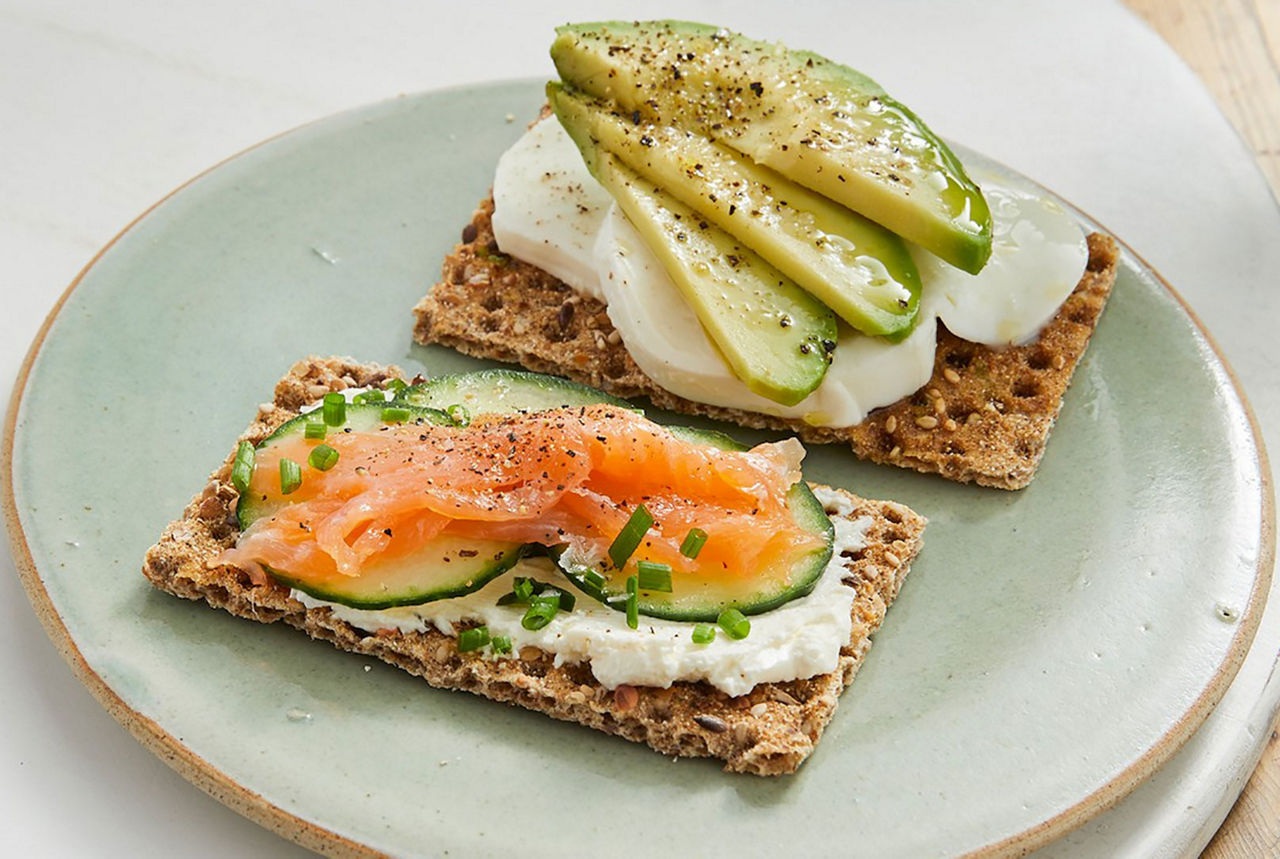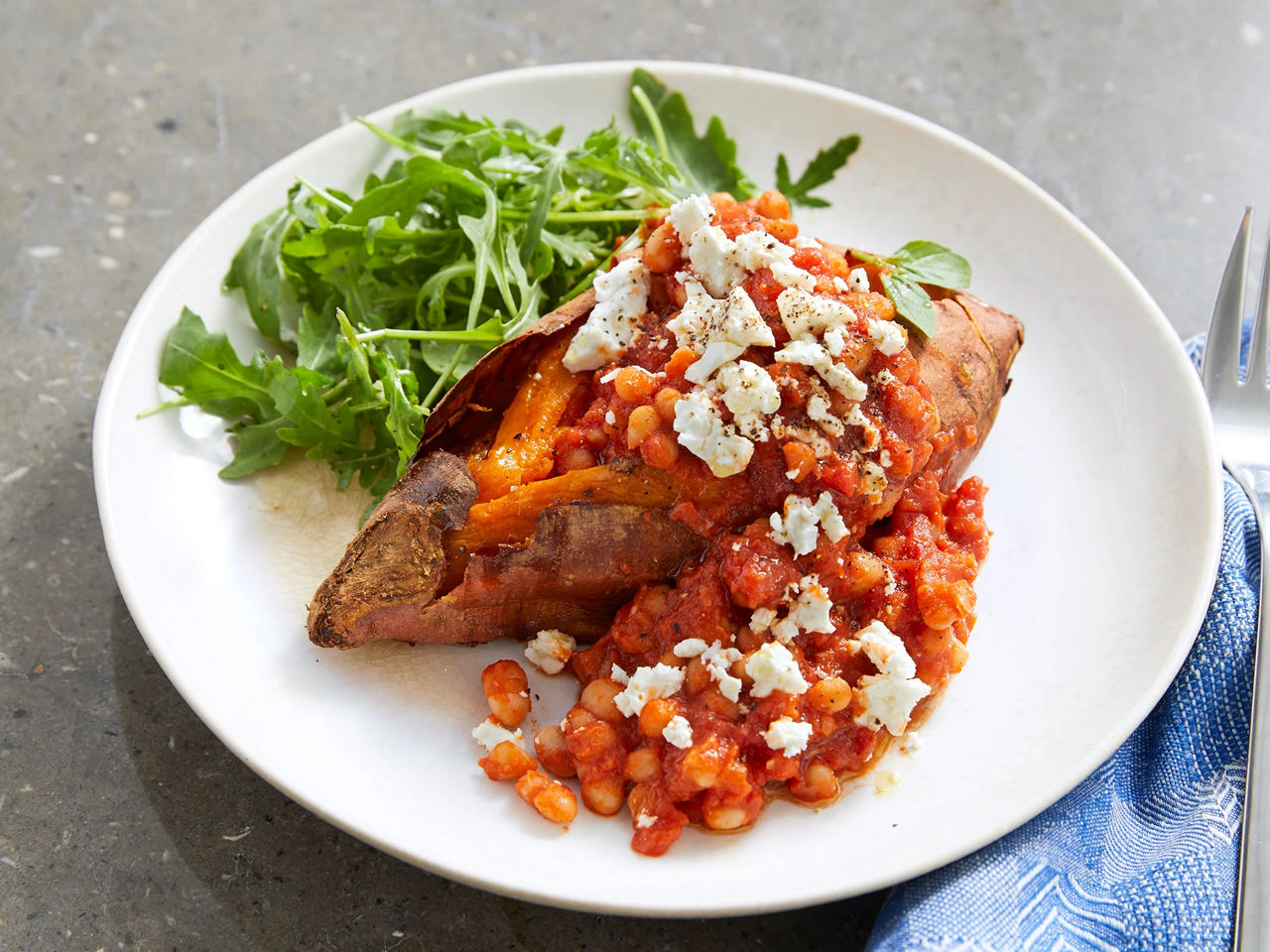Baked feta and pistachio aubergine with garlic couscous
This Mediterranean vegetable dish includes aubergine for fibre and is packed with potassium-rich pistachios. Plus, it’s quick to prepare and delicious.

Content highlights
Type of meal
Lunch
Prep time
10 minutes
Cook time
20-40 minutes
Serves
2
Allergens
tree nuts (pistachios) ◦ gluten (couscous) ◦ celery (stock cube) ◦ milk (feta)
This dish is
vegetarian ◦ low in sugar and salt ◦ a source of fibre ◦ high in protein
Ingredients
- 1 medium aubergine
- 100g low fat vegetarian feta cheese
- ½ tbsp of pistachio nuts, chopped
- 1 tbsp rapeseed oil
- 100g couscous
- 150g cherry tomatoes
- Half a cucumber
- 1 lemon
- 1 tsp reduced salt vegetable stock powder (or half a stock cube)
- 2 garlic cloves, crushed
- ½ tsp ground black pepper
- 1 tbsp basil, roughly chopped
Method
- Preheat the oven to 220°C (fan 200°C), gas mark 6.
- Slice the aubergine in half and score it diagonally in both directions to make a criss-cross pattern. Rub the rapeseed oil into the aubergine halves on both sides, sprinkle with half the pepper, and place in the oven for 30 minutes, or until golden brown on top.
- While the aubergine is cooking, make the couscous. Add the juice of one lemon, two crushed garlic cloves, the remaining pepper and the stock powder to a jug, then pour in 150ml of boiling water and mix.
- Put the couscous in a bowl, add the liquid, stir briefly, cover and leave to stand for 3-4 minutes before fluffing with a fork.
- Chop the cucumber into small chunks, slice the cherry tomatoes in half, mix into the couscous and then set aside.
- Take the aubergine out of the oven, and if the flesh is soft and golden brown, crumble the feta onto each half and return to the oven for a further 5 minutes.
- To serve, sprinkle the aubergine halves with the chopped pistachio and basil, and add a portion of couscous on the side.
Nutritionist's tip
The wider the range of vegetables you eat, the wider the variety of nutrients you’ll get.
Nutritional benefits
- Aubergine contains fibre which helps prevent constipation caused by your hormonal changes1.
- Nuts contain vitamin E, an adequate amount of which during pregnancy reduces the likelihood of your child developing asthma and respiratory issues later in life2,3.
- Couscous contains protein which provides the building blocks for your baby to grow4.
- Tomatoes contain vitamin C which can help protect your cells and keep them healthy5.
| Nutrition value | Amount | % Reference nutrient intake |
|---|---|---|
| Energy | 485kcal | 24% |
| Fat | 21g | 30% |
| Saturates | 5.3g | 27% |
| Sugars | 9.4g | 10% |
| Salt | 1.4g | 23% |
Nutritional claims are based on single-portion analysis.
- NHS. Your pregnancy and baby guide [Online] 2018 Available at: https://www.nhs.uk/conditions/pregnancy-and-baby/common-pregnancy-problems/#constipation [Accessed June 2018].
- Turner SW et al. Associations between fetal size, maternal α-tocopherol and childhood asthma. Thorax 2010;65(5):391-7.
- Devereux G et al. Low maternal vitamin E intake during pregnancy is associated with asthma in 5-year-old children. Am J Resp Crit Care Med 2006;174(5):499-507.
- NHS. Healthy Eating Pregnancy [Online] Available at: https://www.nhs.uk/start4life/pregnancy/healthy-eating-pregnancy/ [Accessed July 2018].
- NHS. Vitamin C in pregnancy [Online] 2017 Available at: https://www.nhs.uk/conditions/pregnancy-and-baby/vitamins-minerals-supplements-pregnant/#vitamin-c-in-pregnancy[Accessed July 2018].
Last reviewed: 28th July 2020
Reviewed by Nutricia’s Medical and Scientific Affairs Team



